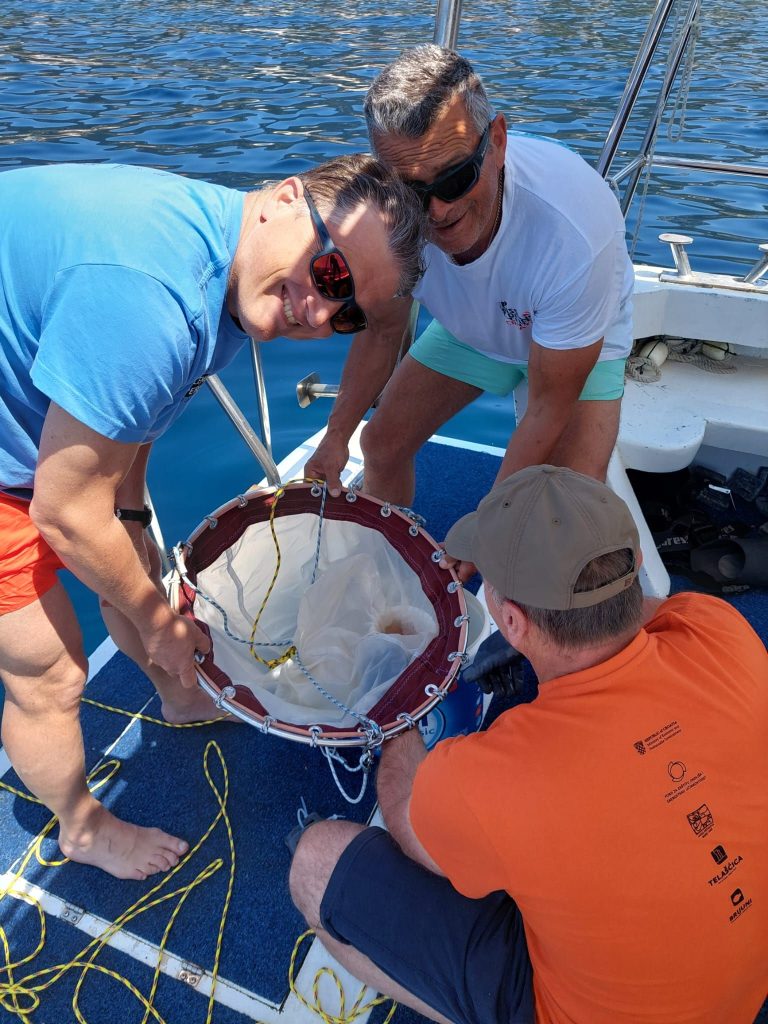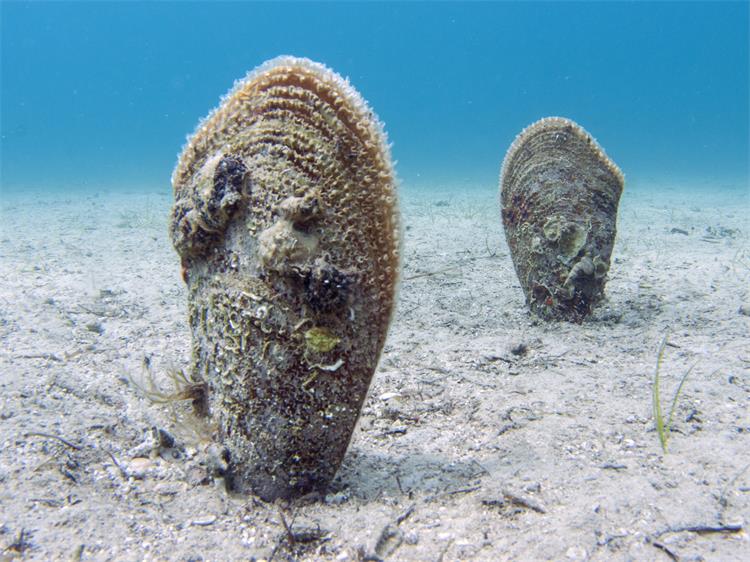June 9, 2023 – Two living noble pen shells were found near the famous Queen”s beach in Nin near Zadar. According to the Pula Aquarium, they protrude 12 centimeters from the sediment.
“They are buried inside, which means they are certainly more than 25 centimeters tall and they are sexually mature. Usually, if they’re smaller than 12 centimeters, they are not sexually active. Noble pen shells are hermaphrodites, which means that they have both male and female gametes. These newly found pen shells are five meters away from each other and the procedure for their preservation is different” – says Aleksandra Beldajković from the Pula Aquarium, as reported by 24Sata.
She adds: “When we find adults in the sea, they stay there. We place a cage in that position to protect them from various predators, such as octopuses. Fruthermore, we place yellow saying ‘Do not touch, pen shell in the Adriatic’.
Critial Condition of Pen Shells
Apparently the condition of the noble pen shell in the Adriatic Sea is still critical. They are on the verge of extinction, which is why the Aquarium started protection activities of this species in 2019. It was then that the first major extinction of these shellfish was recorded in the Adriatic. It first happened in its southern part, near Dubrovnik. The alarm went off and after a few days monitoring began in the northern part of the Adriatic, which was in good condition until that moment. Only three or four months after that, in cooperation with the relevant Ministry, the scientific team of the Aquarium got involved in all the activities around the noble pen shell. The species has been strictly protected since 1992, under the Barcelona Convention, which also applies to Croatia.
“We then received permission to exclude a few noble pen shells, about thirty of them which we analysed. We took the tissues and sent them to the Croatian Veterinary Institute in Zagreb. The pathogen haplosporidium pinnae was discovered. It threatened the noble pen shells, and not any other types. It is a parasite that enters the bivalve, which is otherwise an extremely strong filter. The noble pen shells filter more than 2,000 liters of sea a day. So pen shells, in addition to phytoplankton and zooplankton, came into contact with the parasite that caused the plague. Once the parasite enters a bivalve, it settles in the digestive system, spreads towards the gills. Eventually, the peristalsis cannot filter it out quick enough, and it dies of starvation” – explains Aleksandra.
The first death of the noble pen shell was recorded in 2016 in Spain. The pathogen spread towards France, Italy, and reached the Adriatic via Greece. There is no cure yet.

HOPE FOR SURVIVAL
“All this led to almost 100% mortality in many locations in the Mediterranean and the Adriatic, and in just one year the pen shell received the status of a critically endangered species in the Republic of Croatia. It was the verge of extinction. That’s when the project to preserve the noble pen shell in the Adriatic Sea began, coordinated by the relevant ministry and co-financed by the Fund for Environmental Protection and Energy Efficiency. In the entire Mediterranean, per country, we can estimate that there are 10 living individuals, with the exception of lagoons, where there are more” – says Aleksandra.
Last year alone, 300 people went to the field after noble pen shell sighting reports.
“A team of experts from three institutions checked all the reports. The largest number of good reports came from the northern Adriatic, around Vrsar and Poreč. There are several types of pen shells, but only the noble pen shell is endangered. The Aquarium is the only institution in the country that tries to preserve these individuals under controlled conditions. We currently have eight juvenile pen shells that we collected this year. Moreover, three have been with us for more than a year and a half. We certainly hope that they will live on to stay there. Haplosporidium is so destructive that it can kill hundreds of individuals in one day. It can kill a noble pen shell in just 24 hours” – concludes Aleksandra.








